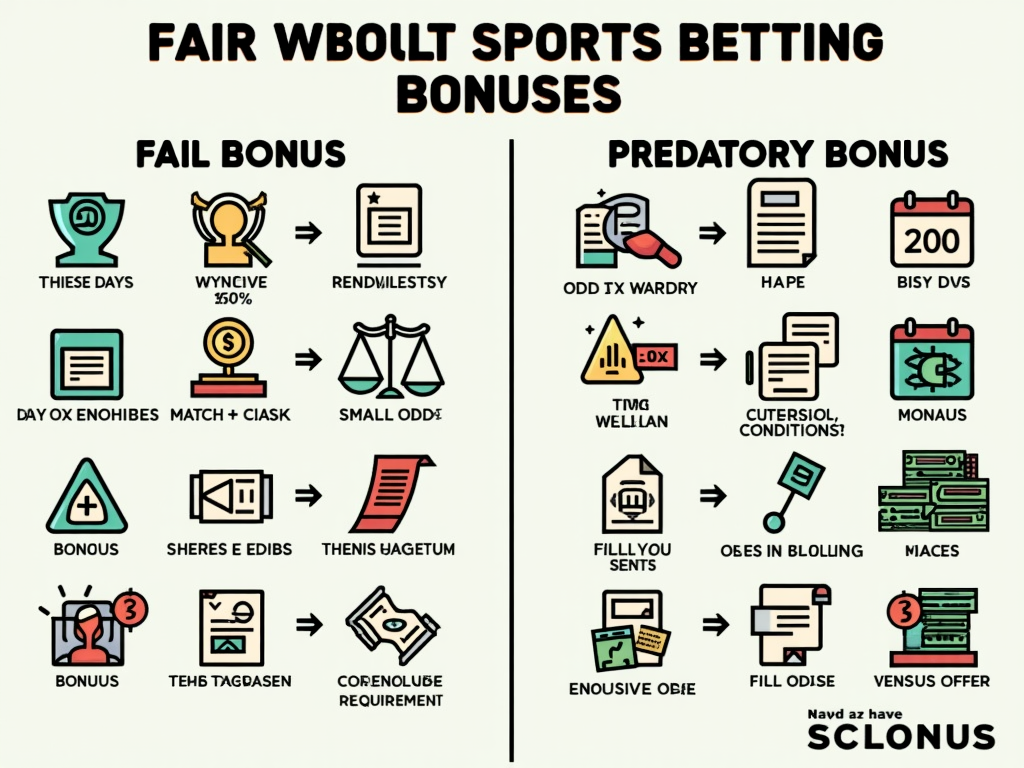Identifying Reliable Online Sports Betting Platforms
Identifying reliable online sports betting platforms demands thorough research into security protocols, licenses, and player safeguards. The most dependable bookmakers prove their credibility through strict regulatory adherence, robust data protection, and transparent business practices that ensure user safety.
Key Takeaways
- Licensed bookmakers must maintain valid credentials from recognized authorities like the UK Gambling Commission or Malta Gaming Authority.
- Legitimate platforms implement advanced security features including SSL encryption and regular third-party audits.
- Warning signs of fraudulent sites include missing license information, suspicious payment methods, and unrealistic bonus offers.
- Player protection tools like deposit limits and self-exclusion options are essential features of reputable betting sites.
- Secure payment processing with multiple options and clear withdrawal procedures indicates platform legitimacy.
Common Traits of Legitimate Betting Sites
I’ve found that legitimate betting sites share common trustworthy characteristics. SSL encryption keeps personal data secure during transactions. Regular security audits validate ongoing compliance. Licensing details appear clearly and are easy to verify.
Payment methods include mainstream options like credit cards and e-wallets. Withdrawal terms are transparent and outline specific timeframes and requirements, helping users avoid confusion.
Commitment to Responsible Gambling
A site’s commitment to responsible gambling practices also indicates reliability. Features like deposit caps, reality checks, and cooling-off periods are critical. Platforms that offer these tools show they care about user well-being.
Professional customer support is another strong indicator. Reliable platforms provide support through multiple channels and respond quickly. Also, transparent bonus terms and achievable wagering requirements suggest a trustworthy operator.
Tips for Verifying a Platform’s Credibility
- Check licensing information and verify it against official regulatory databases.
- Contact customer support before depositing to test their responsiveness.
- Read other users’ reviews on trusted review sites to learn from their experiences.
Taking extra time to verify these security and operational elements can prevent many issues later on. A careful approach ensures you only engage with platforms worthy of your trust.
The Hidden Risks of Unregulated Betting Sites
I’ve seen countless sports bettors fall prey to fraudulent betting platforms, losing their hard-earned money and personal information. The difference between reputable and unregulated betting sites goes far beyond surface-level appearances — it’s about proper licensing, security measures, and consistent fair play.
Critical Warning Signs and Common Scams
The most immediate red flag I look for is missing or invalid license information. Legitimate sports betting platforms proudly display their licensing details, typically from recognized authorities like the Malta Gaming Authority or UK Gambling Commission.
Here are the key warning signs that should make you think twice before depositing money:
- Suspicious payment processing methods that only accept cryptocurrency or wire transfers
- Missing or vague contact information with no physical address
- Poor website security (no SSL certificate or outdated encryption)
- Customer reviews mentioning delayed or refused payouts
- Unrealistic bonus offers that seem too good to be true
- No responsible gambling tools or deposit limits
- Limited or non-existent customer support options
The risks of using these unregulated platforms can be severe. Beyond the obvious danger of losing your deposits, these sites often engage in various scams. I’ve tracked several common schemes they use:
- Odds manipulation: Suddenly changing odds after bets are placed
- Account freezing: Blocking access when users try to withdraw large winnings
- Identity theft: Selling personal and financial information to third parties
- Bonus traps: Creating impossible wagering requirements to prevent withdrawals
The financial impact of these scams is staggering. According to the American Gaming Association, illegal betting operations handle over $150 billion in wagers annually, with countless bettors losing money to fraudulent sites. The FBI’s Internet Crime Report indicates that sports betting scams resulted in over $50 million in reported losses in the previous year.
Instead of risking your money on questionable platforms, I recommend sticking to legitimate sports betting sites that offer:
- Clear licensing information and regulatory compliance
- Multiple secure payment options
- Transparent odds and betting rules
- Responsive customer support
- Fair and clearly stated bonus terms
- Regular security audits and data protection measures
- Responsible gambling tools and resources
The security protocols of regulated sites include advanced encryption, secure socket layer (SSL) certificates, and regular third-party audits. These measures protect your personal and financial information while ensuring fair play and timely payouts.
Remember, unregulated betting sites might offer slightly better odds or more generous bonuses, but these short-term benefits don’t outweigh the substantial risks. I’ve witnessed too many cases where bettors lost thousands of dollars because they chose an unlicensed platform over a regulated one.
Data security breaches at illegal betting sites have exposed millions of users’ personal information. These breaches often lead to identity theft, fraudulent charges, and compromised financial accounts. The damage can take years to repair and might affect your credit score and banking relationships.
Essential Security Features That Protect Your Money
Advanced Encryption Standards
I find that security stands as the cornerstone of any trustworthy reliable sports betting platform. The first layer of protection comes from SSL/TLS encryption, with 128-bit or 256-bit standards being the gold benchmark. This encryption works like a secure vault, scrambling your personal and financial information as it travels between your device and the betting site’s servers.
Payment security takes center stage through PCI DSS compliance – a set of strict security standards that protect your credit card information. This isn’t optional; it’s a must-have feature that safeguards every transaction you make. The best platforms display their PCI DSS certification clearly, often in the footer of their website or within their security documentation.
Fund Protection and Data Privacy
A crucial security measure that caught my attention while researching betting platforms is the segregation of player funds. Smart operators keep customer money completely separate from their operational accounts. This practice protects your deposits if the company faces financial difficulties – your money stays untouched and accessible.
Here are the key privacy features I look for in a trusted betting platform:
- Clear data protection policies that spell out how your information is collected and used
- Regular security audits by independent firms
- Two-factor authentication options for account access
- Automated systems that detect suspicious betting patterns
- Strict verification processes that prevent unauthorized account access
- Regular updates to security protocols and software
- Clear procedures for handling and resolving security incidents
The verification of security certificates proves vital in confirming a platform’s legitimacy. I always check for up-to-date security certificates and look for recognized security seals from trusted authorities. These certificates should be visible and verifiable through your browser’s security settings.
Password policies deserve special attention too. Strong betting platforms require complex passwords and encourage regular updates. They’ll also implement automatic lockouts after multiple failed login attempts to prevent unauthorized access to your account.
Remember that reputable platforms will never ask for your password through email or message – this is a red flag for potential scams. By prioritizing these security features in your choice of betting platform, you’re taking smart steps to protect your money and personal information while enjoying sports betting activities.
Finding a Licensed and Regulated Bookmaker
Key Licensing Authorities and Their Role
Before placing any bets, I strongly recommend checking if your chosen bookmaker holds valid licenses from respected regulatory bodies. The most trusted authorities include the United Kingdom Gambling Commission (UKGC), Malta Gaming Authority (MGA), Gibraltar Betting and Gaming Association (GBGA), New Jersey Division of Gaming Enforcement (DGE), and Pennsylvania Gaming Control Board (PGCB).
These regulators serve as watchdogs for the sports betting industry’s safety standards, performing regular audits and ensuring bookmakers follow strict operational guidelines. They require bookmakers to maintain separate accounts for operational funds and player deposits, protecting your money if the company faces financial difficulties.
Verifying Legitimacy and Security
I’ve found several reliable ways to confirm a bookmaker’s legitimacy. Here are the essential checks you should make:
- Look for the license number at the bottom of the betting site and verify it on the regulator’s official database
- Check if the site uses SSL encryption for secure data transmission
- Confirm the presence of responsible gambling tools and resources
- Review the bookmaker’s dispute resolution procedures
- Verify if they partner with independent testing agencies for fairness certification
A legitimate sports betting platform will clearly display their licensing information and maintain transparent communication about their regulatory compliance. They’ll also implement strong security measures to protect your personal and financial information.
Licensed bookmakers must submit to regular compliance checks and financial audits. These reviews ensure they maintain adequate cash reserves, follow fair gaming practices, and protect against money laundering. They’re also required to implement responsible gambling measures, including self-exclusion programs and deposit limits.
Remember that choosing a licensed bookmaker isn’t just about security – it’s about having recourse if something goes wrong. Licensed operators must follow specific procedures for handling complaints and disputes, giving you added protection as a bettor. They’re also required to provide clear terms and conditions, fair odds, and transparent bonus policies.

Smart Bonus Selection: Reading the Fine Print
Understanding Bonus Structures
I’ve found that betting bonuses can add substantial value to your sports betting experience, but they’re not all created equal. The most common types include welcome bonuses, which you’ll get for signing up, deposit matches that double your initial funds, and free bets that let you wager without risking your money.
Before jumping at an attractive bonus offer, I always check the wagering requirements — these tell you how many times you’ll need to bet the bonus amount before withdrawing any winnings. A fair wagering requirement typically falls between 5x and 20x the bonus amount. For instance, if you receive a $100 bonus with a 10x requirement, you’ll need to place $1,000 worth of bets before cashing out.
Critical Terms to Consider
Minimum odds restrictions play a crucial role in determining a bonus’s true value. Most bookmakers set their minimum odds at around -200 (American) or 1.50 (decimal). This prevents you from using the bonus funds on heavy favorites, which would make it too easy to meet the wagering requirements.
Here are the key elements I always analyze when evaluating a bonus offer:
- Time limits for completing the wagering requirements (typically ranging from 7 to 30 days)
- Eligible betting markets and bet types
- Maximum winning caps
- Minimum deposit thresholds
- Excluded payment methods
Let’s look at what makes a fair bonus versus a predatory one. A fair bonus might offer a 100% match up to $200 with a 10x wagering requirement, minimum odds of -200, and 30 days to complete. This gives you reasonable time and achievable conditions to clear the bonus.
In contrast, a predatory bonus might advertise a larger match percentage but include impossible conditions: think 20x wagering requirements, minimum odds of +150, and just seven days to complete — making it virtually impossible to convert the bonus into real money.
I’ve noticed that understanding basic betting principles helps in making smarter bonus decisions. Don’t let flashy numbers blind you — a smaller bonus with fair terms beats a larger one with unrealistic conditions every time.
Remember to check if your preferred bet types are eligible for the bonus. Some bookmakers exclude prop bets or specific sports from qualifying wagers, which could significantly impact your betting strategy.

Payment Methods and Processing Times
Common Deposit Options and Processing
When betting online, I’ve found that having multiple reliable payment methods is crucial for a smooth experience. Most reputable sports betting sites accept traditional credit/debit cards like Visa and Mastercard, which typically process instantly. E-wallets have become increasingly popular due to their speed and additional security layer. PayPal, Skrill, and bank transfers round out the main deposit options, each with its own benefits and processing times.
Here are the standard processing times you can expect for deposits:
- Credit/Debit Cards: Instant to 10 minutes
- E-wallets (PayPal, Skrill): Instant to 15 minutes
- Bank Transfers: 1–5 business days
- Cryptocurrencies: 10 minutes to 1 hour
Withdrawal Methods and Timeframes
The withdrawal process requires more patience than deposits, as betting sites implement security checks before releasing funds. Each payment method carries specific processing times and potential fees. E-wallets typically offer the fastest withdrawal times, usually within 24 hours, while bank transfers can take up to 5 business days.
Transaction fees vary by payment method and bookmaker. E-wallets might charge 1–2% per transaction, while bank transfers often include flat fees. I always recommend checking the fee structure before selecting a payment method, as these costs can add up over time. Most sites set minimum deposit amounts around $10 and minimum withdrawals at $20, though these limits can vary significantly between bookmakers.
For withdrawal verification, betting sites typically require proof of identity and address — this is a one-time process that helps protect your funds and comply with gambling regulations. Keep in mind that most platforms enforce a policy where withdrawals must be processed through the same method used for deposits when possible.

Essential Player Protection Tools
I’ve seen firsthand how important player protection tools are for maintaining control while sports betting online. These features aren’t optional extras – they’re vital safeguards that help create a secure betting environment.
Setting Personal Betting Boundaries
Modern betting platforms include several customizable controls to manage your gambling activity. You’ll find deposit limits that let you control how much money you can add to your account daily, weekly, or monthly. Loss limits work similarly but focus on preventing excessive losses over set periods. I recommend setting these limits right when you start your sports betting journey before getting caught up in the action.
Time Management and Self-Exclusion Options
Taking breaks is crucial for responsible betting. Here are the key tools at your disposal:
- Reality checks – Pop-up notifications showing how long you’ve been betting and your current session activity
- Session timers – Set specific durations for your betting sessions
- Time-out options – Temporarily block access to your account for 24 hours up to 6 weeks
- Self-exclusion programs – Block yourself from betting for extended periods, typically 6 months to 5 years
These tools work alongside permanent account closure options if you need to stop betting completely. Most platforms automatically display your current balance and betting history, helping you stay aware of your gambling patterns. I always encourage using the responsible gambling features proactively rather than reactively.
Support resources are readily available through betting sites, including direct links to gambling support organizations, self-assessment tests, and professional counseling services. These resources provide confidential help if betting starts affecting your life negatively.
The best platforms make these tools easily accessible, usually through a dedicated responsible gambling section. They’ll also send regular reminders about responsible gambling and check if you’re comfortable with your current limits. By using these protection features consistently, you can enjoy sports betting while maintaining healthy boundaries and control over your gambling activity.

Sources:
UK Gambling Commission – “https://www.gamblingcommission.gov.uk”
Malta Gaming Authority – “https://www.mga.org.mt”
American Gaming Association – “https://www.americangaming.org”





